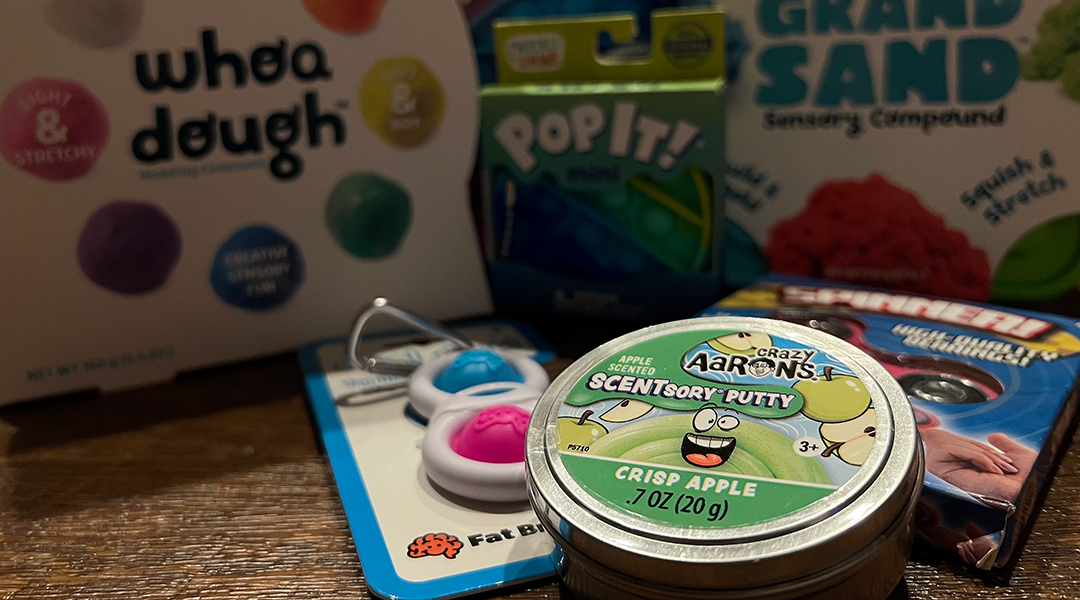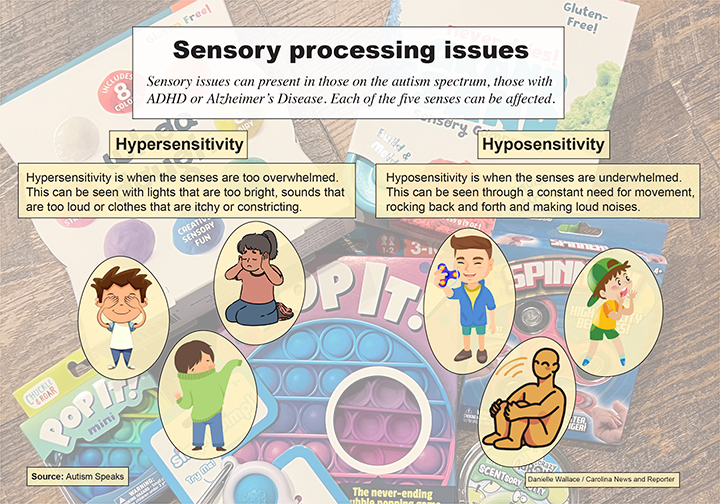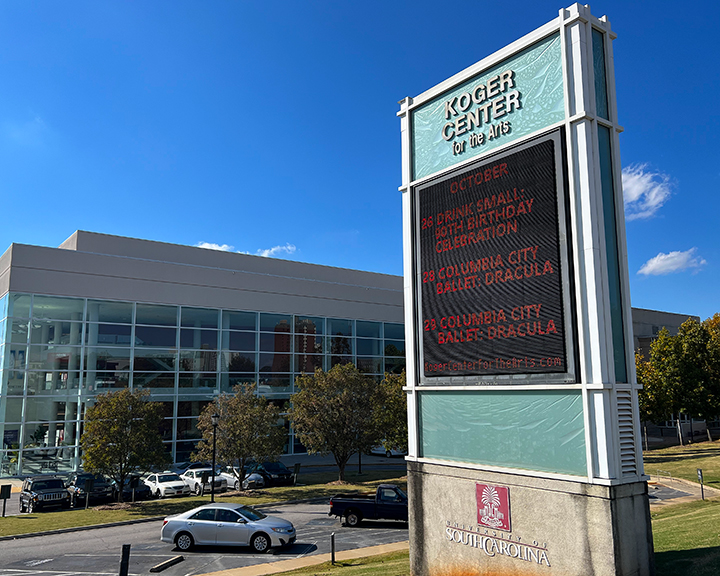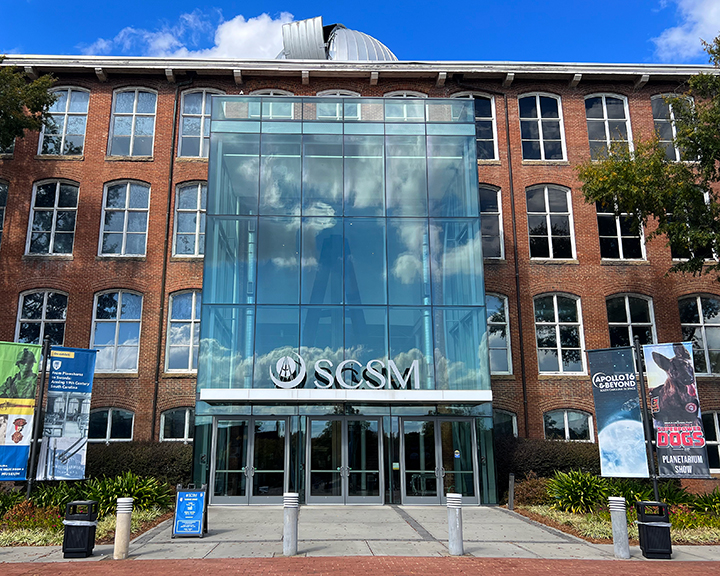Many sensory-friendly toys such as putty, fidget spinners and popping toys can be used to alleviate issues with sensory processing. (Photos and graphic by Danielle Wallace)
Businesses and organizations in Columbia, South Carolina — and across the United States — are expanding to become sensory-inclusive.
The S.C. Philharmonic and the S.C. State Museum offer sensory-friendly spaces and events for those who have sensory-input issues. Sensory input or processing issues can be a sensitivity to bright lights, loud noises or cramped environments.
Sensory processing issues are common in those on the autism spectrum, according to Autism Speaks. Those with sensory issues may be too overwhelmed by their surroundings, such as bright lights or loud noises. Or, they can be too underwhelmed, and may feel the need to constantly move around or make sounds.
Even some airports such as those in Myrtle Beach and Atlanta offer calm rooms that cater to those with sensory input issues.
“I think there is a national conversation (on sensory accommodation) that is happening now in a more mindful, authentic way than ever before,” said Susan Cafferty, the education and engagement director at the S.C. Philharmonic.
The philharmonic has sent ensembles in the past to places such as nursing homes or disability centers to play concerts. But the philharmonic is hosting its first sensory-friendly concert at the Koger Center in February.
“We don’t want this to be just exclusively for (the) disabled, because how are we ever going to break down those barriers if we don’t put people together?” Cafferty said. “It’s OK if this child is, you know, vocalizing and whatnot during this performance. It’s never going to be OK if we don’t teach people it’s OK.”
The philharmonic concert will have accommodations to fit as many needs as possible. It will be on a Sunday afternoon so people have plenty of time to plan transportation. Doors will open an hour early so people can walk through the Koger Center to familiarize themselves ahead of time.
The auditorium lights will also be kept on throughout the performance and a “safe room” with fidget toys will be available for those who might become overwhelmed by the performance. The concert also will be streamed in the lobby, and there will be comfort dogs available in the calm room.
“We want our typical families here, too — that’s the inclusion part,” Cafferty said. “So, we talked a lot about what is the audience that we want, and what are the barriers that are currently in place?”
At the S.C. State Museum, people can attend sensory-friendly exhibits and events the second Saturday of every month. These “accessibility mornings” were implemented pre-COVID, but started again this fall.
The museum opens at 10 a.m. on Saturdays, and the accessibility mornings are offered from 9 a.m. to 11 a.m. The morning includes reading with a literary character, showings in the 4D theater and planetarium, and a sensory-friendly room. Admission is free.
“One thing that was really important for us was to provide a sensory room to decompress,” said Daniel Dickson, the museum’s public relations manager. “Because even though we do our hardest to make this a, you know, a quieter space for these guys to explore at their own pace, it can still be overwhelming.”
Dickson also noted an increase in the number of sensory-friendly events across the United States. He said he encourages other organizations in Columbia to add to that increase, so that sensory-friendly events become common.
“A lot of this is spread by word of mouth,” Dickson said. “If we continue to show the community that this is a regular thing and they can count on us, I think it’s only going to get bigger and better.”
The museum partners with many organizations during its accessibility mornings, Dickson said. Able South Carolina, a disability-led nonprofit, is one of those.
“We try to help (organizations) find ways to ensure that their daily activity is friendly to all types of disability inclusion,” said Mary Alex Kopp, director of public relations at Able S.C. “That being said, we totally understand that there are some people with certain types of disabilities that some experiences need to be modified or changed.”
Cafferty also noted the philharmonic is making as many accommodations as they can to fit all their attendees’ needs. She said this will help their future sensory-friendly concerts, too.
“The arts are the vehicle,” Cafferty said. “We’re going to break down barriers.”
Sensory processing issues include many different sensitivities to things such as bright lights, loud noises or physical touch.
USC’s Koger Center on Greene Street is the site for the South Carolina Philharmonic’s sensory-friendly concert in February.
The South Carolina State Museum on Gervais Street offers monthly events tailored to those with sensory input or processing issues.





